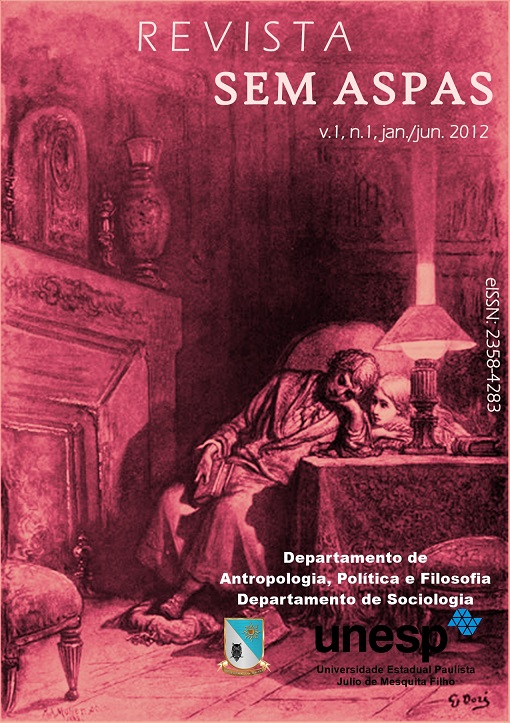The wild thought and child psycholoy: new approaches from the dialogue of Claude Levi-Strauss and Maurice Merleau-Ponty
DOI:
https://doi.org/10.29373/sas.v1i1.6977Keywords:
Anthropology, Phenomenology, Structuralism, Psychology,Abstract
The ideas about “logical”, “non-logical” and “pre-logical” consider an understanding about rationality or the discretion to state what rationality
intelligible is. Ethnology and phenomenology, when considering the dialog of Claude Lévi-Strauss and Maurice Merleau-Ponty, have in common the enlargement of concept about “rational” or “reason” as both authors make it intelligible as certain logical procedures that were previously not apprehensible in themselves. While Lévi-Strauss says there is no thought of the primitive, but only the savage mind, in the other words, a mode of knowledge closer to perception and imagination and which operates according to the logic of the concrete, in another sense, Maurice Merleau-Ponty draws on their work, about the perception and the development of an ontology of the sensible, to contest the claim that children have pre-logical thought, when judged against the criterion of “representation”. The two authors have, therefore, the perception is the foundation for the assertion of the savage mind or child psychology, and converge on the location of the arts space for the possibility of learning to see the world differently in Western culture.










